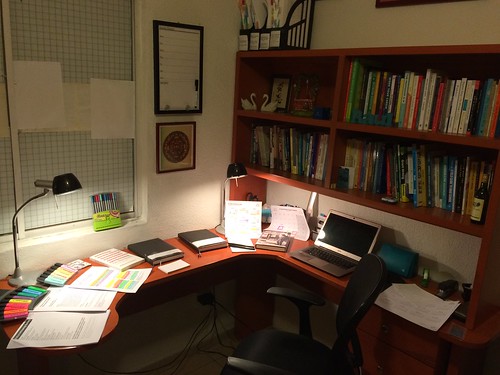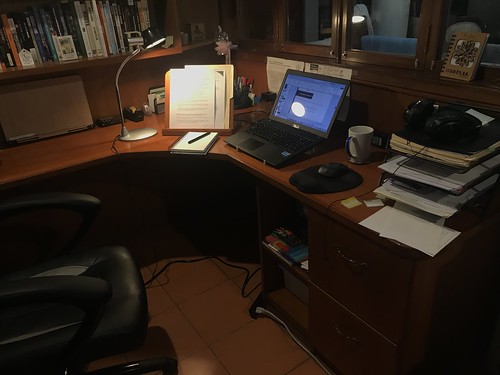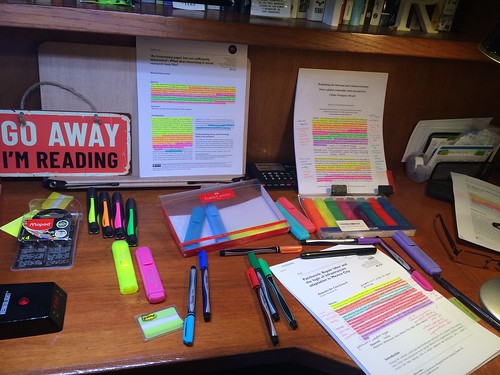I’ve had an absolutely bonkers pair of months (April and May, and June is gearing to be the same). For the first time in 2.5 years, I attended in-person workshops (2!)
I am, of course, behind on absolutely everything.
I used to be a very big proponent of the “write whenever you have a small pocket of time” trope up until my health started to go downhill quickly (I am very immunecompromised, since birth, and thus respiratory infections take me out a solid two weeks).
I now try to write for longer periods of time if at all possible.
However, not everybody is me, and therefore when I write about writing on my blog, I describe the range of strategies I have used and continue to use, depending on my health, the amount of service work I have, teaching, and other commitments.
So here’s what I have found.
1) PROMPTS HELP ME WRITE. Prompts help my students write, and also participants in the workshops I teach.
I am not the kind of person who will open the Word document and be like “LET’S WRITE”. I need something that PROMPTS ME to start writing. I respond to external stimuli.
Do I fear facing The Dreaded Blank Page? Of course I do. Here are three strategies that help me out:
1) Break down the project in smaller pieces.
2) Deal with each piece of writing/research on its own.https://t.co/7lx4bwymex
— Dr Raul Pacheco-Vega (@raulpacheco) June 9, 2022
2) FOCUS, EVEN IF IT’S ONLY FOR 30 MINUTES
Sometimes, all I have is 30 minutes to do *some* writing. Other times, I can ONLY focus for 30 minutes. I find that sitting and tackling ONE TASK for 30 minutes DOES help me start writing, even if just a bit. https://t.co/Aedss19GxQ
— Dr Raul Pacheco-Vega (@raulpacheco) June 9, 2022
But writing is a PRACTICE that requires a repertoire of strategies and techniques. A lot of us, myself included, want to write books, articles, papers, chapters just like “laptop open – Word open – words flow”. That’s not how it works.
Developing a writing practice TAKES TIME.
Which takes me to the following strategy to overcome writer’s block:
3) WRITE FOR SHORT PERIODS OF TIME, JUST A FEW WORDS. Give yourself the opportunity to restart your academic writing practice by setting reasonable goals: 15 minutes, 125 words: https://t.co/Aedss19GxQ
— Dr Raul Pacheco-Vega (@raulpacheco) June 9, 2022
I have several pieces overdue (and though I am almost back to 100% healthy, I have A LOT going on over the next month, so I need to balance my overdue writing commitments with my health and everything else I have on my plate).
On to RESTARTING.
This is a word I hear often.
Seasoned writers (several of them full professors!) come and tell me frequently “I used to have a solid writing practice and a routine, and all of a sudden life/childcare/eldercare/COVID/service work/teaching threw all of that into disarray”.
Friends, you & me both. I get you.
I think it’s only human to accept that we might have had the best writing practice and the most amazing routines and then life threw a wrench at us and now we’re faced with the challenge of restarting while dealing with *waves hands around* all of this.
Here’s how I’m doing it:
“But the water does not flow from the well if there’s no liquid in there…” As a scholar of water governance I know this well. I can’t write just out of thin air.
5) READ BEFORE AND AS YOU WRITE.
It’s high time we legitimise “reading as writing” https://t.co/lQSxjOEV5G
— Dr Raul Pacheco-Vega (@raulpacheco) June 9, 2022
In fact, if you’ve ever attended any of my writing workshops, you probably have heard me speak at length of the RASA model of learning in academic writing: Reading, Annotating, Synthesizing and Absorbing (here a modified version specific to writing:) https://t.co/O6weATQ0pD
— Dr Raul Pacheco-Vega (@raulpacheco) June 9, 2022
Reading is an absolutely integral part of my writing process.
Reading helps me improve my written prose.
Reading helps me think through ideas I’ve been trying to put into dialogue with other authors’ arguments.
I can’t write if I don’t read. I read every day, in fact. except when I am very ill.
And perhaps one of my most popular blog posts on how to get “unstuck” with your writing. These 5 strategies might help. And with that, I’ll end this thread. Hope these suggestions are helpful! https://t.co/SpyFP7X1Je
— Dr Raul Pacheco-Vega (@raulpacheco) June 9, 2022
These are a few strategies that may be of help to some of you. Good luck!





0 Responses
Stay in touch with the conversation, subscribe to the RSS feed for comments on this post.